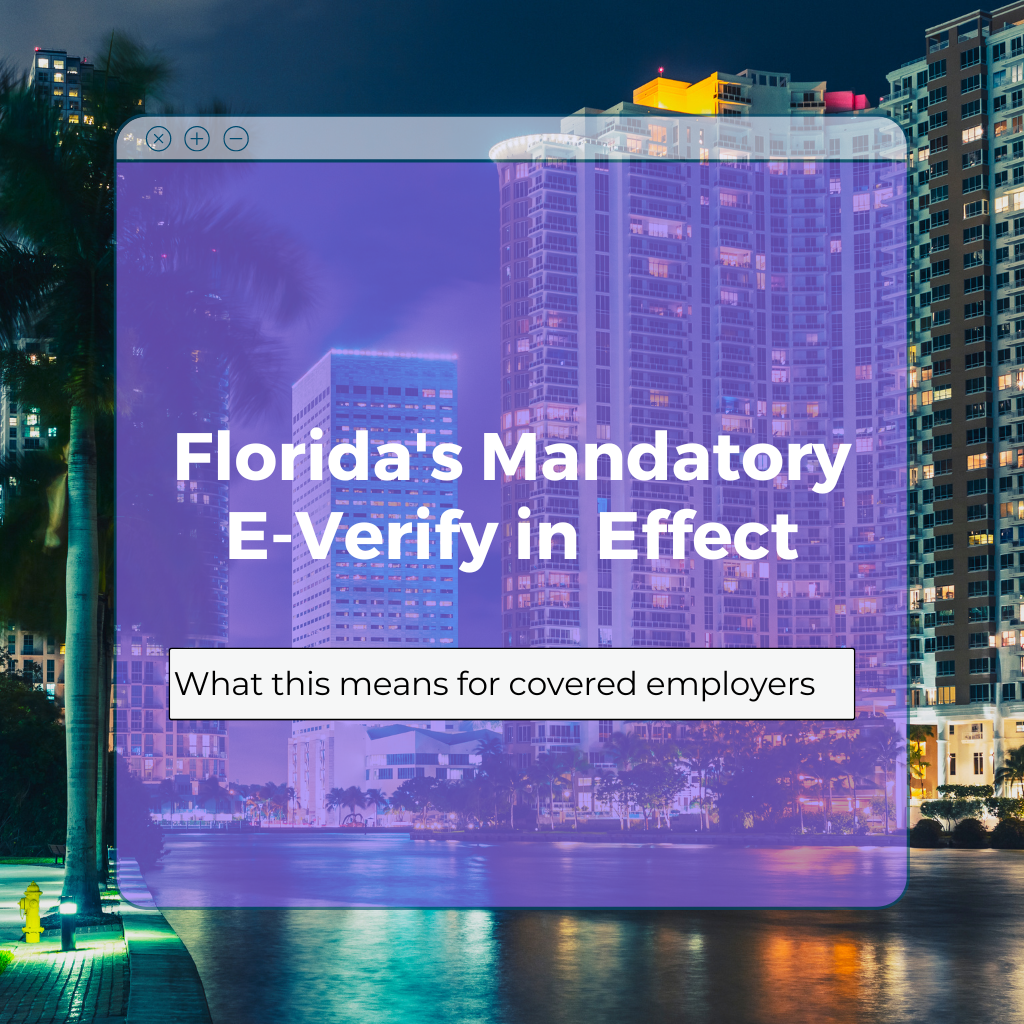July 17, 2023
Private employers with 25 or more employees must now use E-Verify to confirm employees’ eligibility to work in the United States. This requirement went into effect on July 1, 2023. Contractors, subcontractors, and public employers started using E-Verify in 2021.
E-Verify is a federal web-based system employers can use to verify the information entered on Form I-9. This law describes “employees” as those with a permanent job or perform labor or services that the employer directs or controls. Unfortunately, the law does not specify what permanent means. As such, it remains unclear whether employers must use E-Verify for seasonal, temporary, or other employees not considered permanent.
It is illegal for Florida employers to employ someone not authorized to work in the United States. Employers in Florida or anywhere in the U.S. must verify an employee’s eligibility to work within three days of their first day of paid work by completing the employment eligibility verification (Form I-9) process. Florida has mandated that employers with or more employees use E-Verify to ensure everyone complies. In addition, they must certify in the first RT-6 return that they complied with the mandate.
The law included an exception in case employers cannot use the E-Verify system. Should it prove unavailable during the first three business days of an employee’s paid work, the employer can use Form I-9 alone. However, they must provide evidence that the E-Verify system was unavailable each day.
“An employer must document the unavailability of the E-Verify system by retaining a screenshot from each day which shows the employer’s lack of access to the system,” or “a public announcement that the E-Verify system is not available, or any other communication or notice recorded by the employer regarding the unavailability of the system.”
Suppose an employer cannot use E-Verify and chooses to use Form I-9 and documents the unavailability of the E-Verify system. In that case, they have a rebuttable presumption that they did not hire an alien ineligible to work in the United States. Employers using E-Verify and utilizing the same documentation required for completing Form I-9 establish an affirmative defense. This defense indicates that they have not violated Florida law by employing an alien ineligible to work in the United States. However, employers must retain these documents with any official verification they receive for at least three years.
Florida will begin enforcing the law starting July 1, 2024. The Florida Department of Economic Opportunity (DEO) will notify employers who fail to use E-Verify when required by law. After receiving the warning, the employer must comply within 30 days. Should an employer fail to comply with this law three times within 24 months, the DEO will levy a fine of $1,000 each day until the employer complies. Employers who fail to comply with the E-Verify law may have their licenses suspended by a Florida licensing agency.
Employers using E-Verify must first complete Form I-9, which has proven complicated for many. The best way to complete this form correctly is with an electronic I-9 management tool that offers E-Verify integration. This tool can guide employers through employment verification and securely store the forms and accompanying documentation.
